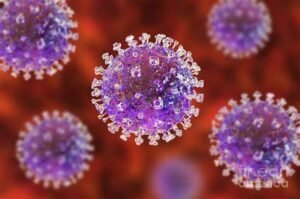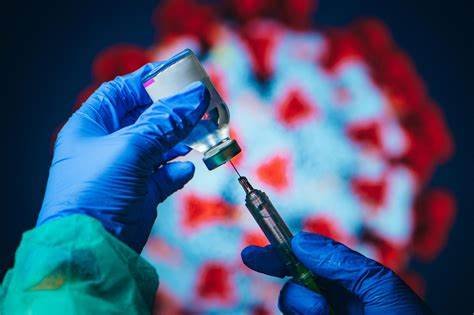Scientists at Oxford University in England have started the first vaccine trial for the deadly Nipah virus, which is affecting many Asian countries including India.
“Indian Council of Medical Research (ICMR), Nipah virus is more dangerous than Corona. Nipah virus can cause more deaths than Corona.
Only 2-3 percent of people infected with Corona died. But 40-70 percent of people are dying due to Nipah virus. Further, it informed that appropriate measures are being taken to prevent the spread of this virus.
Nipah virus is a devastating disease, with mortality rates ranging from 40 to 70 percent, researchers said.
They said that the disease has been reported in Asian countries including Singapore, Malaysia, Bangladesh and India and most recently in Kerala in September last year.
 Fruit-eating bats harbor these viruses. It can be transmitted directly from bats to humans, and how the infection is transmitted from bats to humans cannot be confirmed. But efforts are ongoing to find it. This infection always occurs during the rainy season.
Fruit-eating bats harbor these viruses. It can be transmitted directly from bats to humans, and how the infection is transmitted from bats to humans cannot be confirmed. But efforts are ongoing to find it. This infection always occurs during the rainy season.
The virus, recognized by the World Health Organization as a priority disease requiring urgent research, belongs to the same family of paramyxoviruses as well-known pathogens such as measles, they said.
Although the Nipah virus first appeared in Malaysia and Singapore 25 years ago, there are no approved vaccines or treatments until now.
“Nipavirus was first identified in 1998, and for 25 years the world health community has yet to find an approved vaccine or treatment for this devastating disease,” said Brian Angus, principal investigator and professor of infectious diseases at the University of Oxford.
“Due to the high mortality rate and nature of Nipah virus transmission, this disease has been identified as a primary epidemic.”
The ChdOx1 NipahB vaccine developed by Oxford University’s Institute of Epidemiological Sciences was the first vaccine administered to humans with 51 volunteers aged 18 to 55 undergoing a screening process to participate.
“This vaccine trial is an important milestone in preventing local outbreaks, while helping the world prepare for future global pandemics,” said Angus.
The trial will focus on assessing the safety of the vaccine and analyzing immune responses in a young, healthy population.
“This trial is a step forward in efforts to develop a suite of tools to protect against the deadly Nipah virus.
The trial will run over the next 18 months, with more trials expected to follow in the Nipah-affected country.











